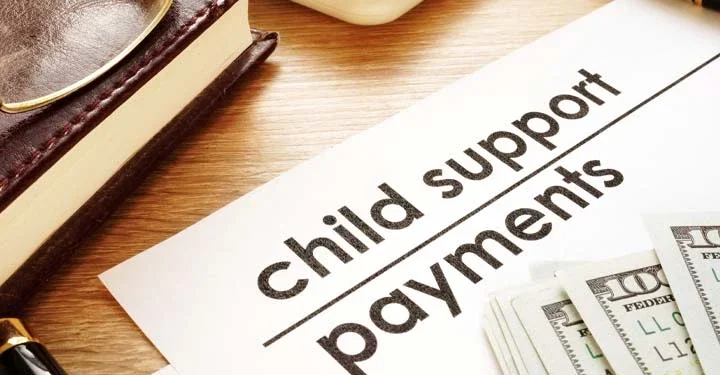Child support, also known as child maintenance, is a continuous payment made by one parent to another for the purposes of a child's financial benefit. When couples split up, it's common for both parents to continue providing for the children. In most cases, though, the custodial parent who lives with the child most of the time will often bear the bulk of the expenses for raising the child. To make things fair, the court may require the noncustodial parent to make child support payments in order to relieve some of that burden from the custodial parent.
Child Support Payment Methods
Once the court calculates the income of both parents, it will determine what child support is necessary, if any. And if the court orders child support, there are typically two different ways those payments can be made.
In some states, the law requires that payments be made directly from one parent to another. In other states, the law requires indirect payments where one parent issues payment to the state, which then distributes the support payments to the other parent. And in cases where you get behind on your payments, the state can garnish your wages in order to cover your missed support obligations.
Proof of Direct Payments
If you are required to make your child support payments directly to the other parent, it's imperative that you collect proof of those payments at the time you make them. Because other forms of payments typically have a paper trail, direct payments are often where conflicts over child support originate. This is especially true if you pay your obligations with cash.
Cash should only be used as a last resort. A check or money order will leave a paper trail in case you ever need to prove your payment. A cashed check or a money order stub are strong evidence that a payment has been made.
If you have previously made payments in cash, all is not lost. If a dispute arises, you may be able to use your bank records to show withdrawals in the amount owed. For any future cash payments, it's wise to either request a receipt or attach a letter acknowledging the payment. Be sure to keep copies of these documents.
Proof of Indirect Payments
In most cases, it's much easier to prove indirect payments. Typically, when you make a payment to a state agency, you will be given a receipt. The agency will also be required to keep a log of your payments, so the evidence should always be available. That being said, it's in your best interest to keep copies of every receipt.
Proof of Garnishments
If your employer garnishes wages for your child support, there will be company records that reflect the amounts collected. If you are required to provide evidence of the payments, you can obtain copies of the company's records that will reflect the amount withheld from your paycheck.
Protect Yourself by Keeping Records
The determination of child support is made at the initial divorce proceeding. Altering a child support order after the fact is possible with an experienced family law attorney, but it's easier to obtain a favorable child support arrangement during the original divorce proceeding.
Unfortunately, disputes regarding these payments arise from time to time. That's why it's important to keep evidence of every payment you make. In a worst-case scenario, the court could mandate you to make the same payment again if you aren't able to prove you made it the first time.


